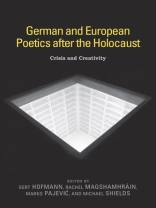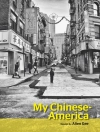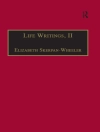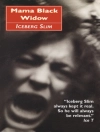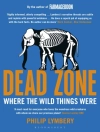New essays on poetical and theoretical responses to the Holocaust’s rupture of German and European civilization.
Crisis presents chances for change and creativity: Adorno’s famous dictum that writing poetry after Auschwitz would be barbaric has haunted discourse on poetics, but has also given rise to poetic and theoretical acts of resistance. The essays in this volume discuss postwar poetics in terms of new poetological directions and territory rather than merely destruction of traditions. Embedded in the discourse triggered by Adorno, the volume’s foci include the work of Paul Celan, Gottfried Benn, and Ingeborg Bachmann. Other German writers discussed are Ilse Aichinger, Rose Ausländer, Charlotte Beradt, Thomas Kling, Heiner Müller, and Nelly Sachs; concrete poetry is also treated. The final section offers comparative views of the poetics of European literary figures such as Jean Paul Sartre, André Malraux, and Danilo Kis and a consideration of the aesthetics of Claude Lanzmann’s film
Shoah.
Contributors: Chris Bezzel, Manuel Bragança, Gisela Dischner, Rüdiger Görner, Stefan Hajduk, Gert Hofmann, Aniela Knoblich, Rachel Mag Shamhráin, Marton Marko, Elaine Martin, Barry Murnane, Marko Pajevic, Tatjana Petzer, Renata Plaice, Annette Runte, Hans-Walter Schmidt-Hannisa, Michael Shields, Peter Tame. Gert Hofmann is a Lecturer in German, Comparative Literature, Drama, and Film and Rachel Mag Shamhráin is a Lecturer in German, Film, and Comparative Literature, both at University College Cork; Marko Pajevic is a Lecturer in German at Queen’s University Belfast; Michael Shields is a Lecturer in German at the National University of Ireland, Galway.
विषयसूची
Introduction – Gert Hofmann and Rachel Mag Shamhráin and Marko Pajevic and Michael Shields
The Poetics of Silence: Nelly Sachs – Elaine Martin
‘Flaschenpost’ and ‘Wurfholz’: Reflections on Paul Celan’s Poems and Poetics – Gisela Dischner
History and Nature in Motion: Paradigms of Transformation in the Postwar Poems of Ingeborg Bachmann – Marton Marko
Mourning as Remembrance: Writing as Figuration and Defiguration in the Poetry of Rose Ausländer – Annette Runte
On the Fringes: Mistrust as Commitment in the Poetics of Ilse Aichinger – Marko Pajevic
Nazi Terror and the Poetical Potential of Dreams: Charlotte Beradt’s Das Dritte Reich des Traums – Hans-Walter Schmidt-Hannisa
Between Kahlschlag and New Sensibilities: Notes toward a Poetics of Thought after Gottfried Benn – Rudiger Gorner
‘Barely explicable power of the word, that separates and conjoins’: Gottfried Benn’s Problems of Poetry and Its Poetology of Existence – Stefan Hajduk
Concrete Poetry – Chris Bezzel
Heiner Müller: Discontinuity and Transgression – Renata Plaice
Let’s Begin, Again: History, Intertext, and Rupture in Heiner Müller’s Germania Cycle – Barry Murnane
Rupture, Tradition, and Achievement in Thomas Kling’s Poetics and Poetry – Aniela Knoblich
Sartre and His Literary Alter Ego Mathieu in Les Chemins de la liberté (1938-49): From the Roads to an Abstract Freedom to the Roads of Authenticity – Manuel Braganca
André Malraux and Oswald Spengler: The Poetics of Metamorphosis – Peter Tame
Freud’s Brain in the Snow: Catastrophe and Creativity in the Poetics of Danilo Kis – Tatjana Petzer
Claude Lanzmann’s Shoah and the Aesthetics of Ohnmacht – Gert Hofmann
Works Cited
Notes on the Contributors
Index
